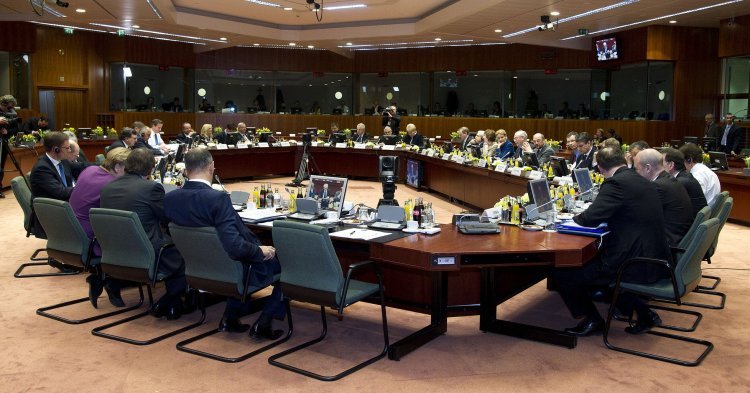Abolishing the European Council is an already existing idea, written e.g. in the political platform of the Young European Federalists. By tracking down the functions of the European Council and finding alternative solutions, we find that it could de facto be abolished even without treaty change.
Appointments
The European Council generally seeks to make decisions by consensus, which in some cases is risky business. We remember how in the summer of 2014 Jean-Claude Juncker’s nomination as the President of the Commission was made excessively complicated because David Cameron and Viktor Orbán opposed it. When thinking about the drama, one can’t help but ask whether the European Council is an institution that represents European democracy. The European public had spoken: Juncker’s EPP was the biggest party in the 2014 European elections. His mandate came as directly from the public as possible in European elections – appointing the leader of the biggest party as Prime Minister is standard practice on the national level. Could two national leaders, who the citizens of 26 EU Member States had never voted for or against, suppress the voice of the public? In 2014 the answer was fortunately no but the June 2014 summit served as a warning sign.
So, with Spitzenkandidaten at least the leader of the European Commission has a democratic mandate. If we manage to consolidate the system in future European elections, it becomes stronger and stronger with time. We will no longer need the European Council to nominate the President of the Commission. We will have European elections, European democracy to elect the European leader. A democratically more robust Commission, together with the Parliament and the Council of the European Union could, in turn, have more legitimacy than before when it comes to making appointments to other important positions, such as that of the President of the European Central Bank. (Unlike the europa.eu overview of the European Council, Article 15 of the Lisbon Treaty doesn’t say anything about appointments.)
Political priorities of the EU
What about policy objectives, then? The European Council isn’t involved in lawmaking but the Commission is. The Commission also sets out its priorities in its Work Programmes. One could ask, why should an institution which neither legislates nor has a direct mandate from the European public determine Europe’s political priorities instead of the Commission?
By adopting initiatives to further democratise the Commission we could make the question even harder to answer. For instance, we could introduce a form of parliamentarism to EU politics by advising nation-states to strictly nominate candidates to the Commission from parties which together have the majority of seats in the European Parliament. For example, if EPP and S&D combined have a majority in the Parliament and members of all other parties are intentionally excluded from the selection process, we will have a European majority government. Europeans voted for EPP and S&D, so they shall be governed by EPP and S&D politicians. Another idea to increase the legitimacy of the Commission is to appoint successful MEPs previously elected from transnational lists once they exist – that way we would have Commissioners who have already gained democratic mandate from the European public in earlier elections, which would be a positive development especially if combined with a party-based selection process.
Needless to say, after these democratic reforms in the Commission, of which the High Representative is a member, heads of state and Prime Ministers would not need to be directly involved in shaping the foreign policy of the Union. Nation-states would still have their say through their Foreign Ministers. Article 15 of the Lisbon Treaty says that the President of the European Council shall “ensure the external representation of the Union in issues concerning its common foreign and security policy, without prejudice to the powers of the High Representative of the Union for Foreign Affairs and Security Policy”, but in order to ensure that the EU, as the saying goes, “speaks with one voice”, the President could in practice refrain from this.
Forum for complex and sensitive issues
Like EU migration summits have shown, the European Council also serves as a forum for discussion on complex and sensitive issues. In this regard, the line between the functions of the Council of the European Union and the European Council is blurred. For instance, Ministers of the Interior could discuss migration instead of Prime Ministers if national governments wanted it to be that way. It is a question of political culture and the mandate given to ministers by their national governments: if ministers are, with no exceptions, allowed to negotiate on behalf of their governments in the policy areas within their portfolios, the Council of the European Union is able to carry out this function instead of the European Council.
This vision would see the powers of the European Council devolved into the hands of other bodies, which implies its de facto abolition, even though the treaty in which its functions are specified would stay in force. A number of agreements made for reasons of democratic legitimacy could produce treaty reform without treaty reform.


Follow the comments: |
|
